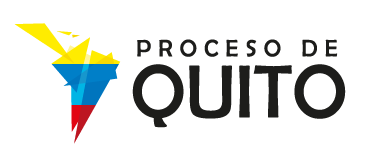Study analyzes the health response of member states of the Quito Process during the COVID-19 pandemic
How was the access to health care for refugees and migrants in the member countries of the Quito Process in Latin America and the Caribbean in the face of the COVID-19 pandemic? How did they react to different health needs at a specific time?
By Ana Gama
These were some of the guiding questions of the study “Access to health for Venezuelan migrants and refugees in the member states of the Quito Process, during the COVID-19 pandemic”, carried out by the International Organization for Migration (IOM) and the Pan American Organization for Health (PAHO/WHO), with the support of the European Civil Protection and Humanitarian Aid Operations (ECHO).
On October 27, 2022, the webinar to launch the study that analyzed the health services offered to Venezuelan migrants and refugees during the COVID-19 pandemic in the Member States of the Quito Process took place. 85 participants of the launch webinar were able to learn about the results of the study, which had the response of 10 member countries of the Quito Process1. The study was first presented during the plenary session of the Brasília Chapter, in June 2022.
The launch webinar also featured an opening by the Brazilian PPT, IOM and ECHO, in addition to a presentation on the health panorama of Venezuelan migrants and refugees in the region and in the fight against COVID-19, by PAHO/WHO, and UNHCR presented the analysis of the health needs of refugees and migrants carried out by the R4V platform.
A crucial aspect in the mixed migration flow of Venezuelan refugees and migrants is the diverse vulnerabilities that this population faces. In particular, the conditions of the migratory process can increase vulnerabilities and generate negative health impacts, since migration is a social determinant of health.
In the webinar, the speakers highlighted how the States provided a response and a very interesting model at the international level of health inclusion, both in the vaccination processes and in the psychosocial support to the Venezuelan migrant refugee population, regardless of their regular or irregular migratory status, since that some countries have adapted their laws to include the irregular population.
Overall, all 10 countries responded that hospitalization for COVID-19 treatment and COVID-19 vaccination were free and affordable, regardless of migratory status, regular or irregular. In addition, 9 countries responded that access to COVID-19 medical examinations and consultations was free and accessible regardless of immigration status, regular or irregular. So there was an expansion of health coverage and the region walked together, that is, at a time of pandemic, those who did not guarantee health services expanded access to health for migrants and refugees.
This was the case of the good practice presented by Peru, which made ad hoc changes in its regulations and public health policies to include the Venezuelan migrant and refugee population in its health systems, highlighting the vulnerability of this population and the urgency of guaranteeing their access to health. during the COVID-19 pandemic.
1 Of the 13 member countries of the quito process, 10 answered the questionnaire to participate in the study: Argentina, Brazil, Colombia, Costa Rica, Ecuador, Guyana, Mexico, Dominican Republic, Peru and Uruguay.

